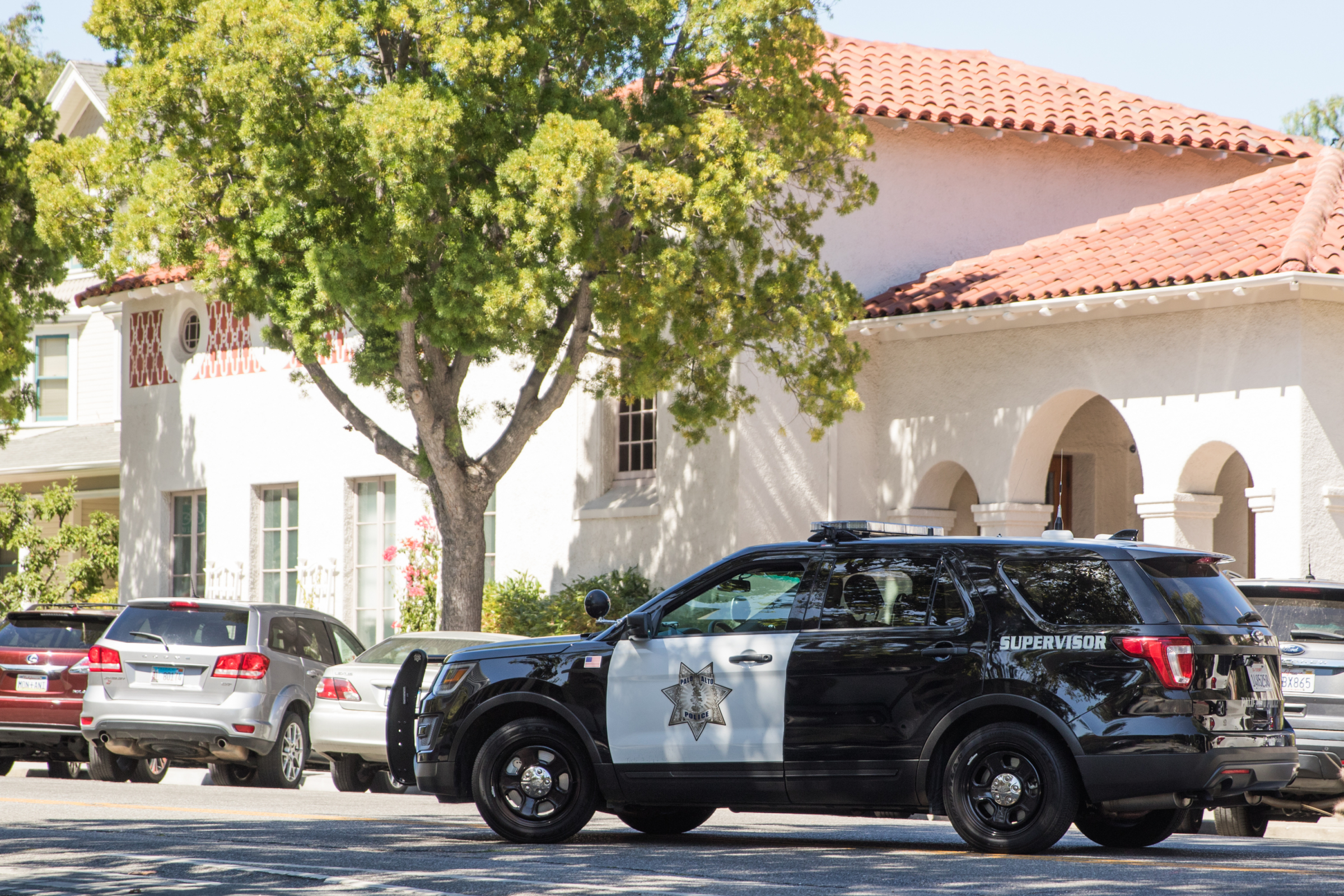An effort by state Sen. Josh Becker to restore media access to police radio communications encountered resistance Tuesday, with several members of the state Assembly Public Safety Committee warning him that the measure is unlikely to win passage without stronger support from law enforcement agencies and backing from the state Department of Justice.
Becker's bill, Senate Bill 1000, is a response to the recent trend of police departments across the state fully encrypting their radio communications, thereby blocking the media or the public from monitoring police activities. In adopting the encryption policies, law enforcement agencies point to an October 2020 memo from the state Department of Justice, which ordered them to protect personally identifiable information such as Social Security numbers, license plate numbers and criminal records from radio transmission.
The DOJ memo allowed law enforcement agencies to meet the memo's objective by either encrypting their radio communications or adopting policies that protect private information but transmit most other communications through open channels. The Palo Alto Police Department is one of dozens around the state that chose full encryption.
While Palo Alto has publicly supported SB 1000, other law enforcement agencies are fiercely opposing the bill. The Riverside County Sheriff's Department is among them. Sgt. Julio de Leon said his department had spent millions of dollars to encrypt its radio communications and thousands of personnel hours.
"Now with this bill, the legislation will be forcing us to decrypt communications once again, which will cost us several millions of dollars to accomplish this task and thousands of hours," de Leon said. "This is simply unfair."
The two Republicans on the committee, Vice Chair Tom Lackey and Assembly member Kelly Seyarto both said they will oppose the bill. Lackey noted that the push to encrypt was prompted by a state Department of Justice mandate and argued that the remedy must similarly come from the state department. Proponents of the bill, he said, need to work out the solution with the DOJ.
"I understand their frustrations but I totally believe (what is) being proposed here creates a greater problem in compliance, and I believe law enforcement is truly caught in the middle on this thing and it's unfair to them, as an agency, to comply with privacy (requirements) and also reach out and engage in transparency," Lackey said.
Seyarto argued that requiring police officers to add additional frequency just for sharing information could create a barrier for their safety if they have to switch frequency while under duress.
"For me, paramount in all of this is the safety of the police officers," Seyarto said.
Though similar arguments came up during Senate hearings, SB 1000 enjoyed a relatively smooth path through the Legislature's upper chamber, which on May 26 voted to approve the bill by a 25-8 vote, largely along party lines. The Tuesday meeting suggested that getting through the Assembly level may prove to be tougher.
Even though the committee voted 3-2 along party lines to advance SB 1000, those who supported it suggested that the bill's proponents need to work closer with law enforcement agencies to reach a compromise.
Assembly member Reggie Jones-Sawyer, who chairs the Public Safety Committee, told Becker that his biggest challenge will probably be getting the bill out of the Appropriations Committee and resolving whether the legislation will cost millions of dollars for law enforcement to implement.
"Hopefully, you can get there, otherwise you'll have a difficult time to get out of Appropriations and get off the floor," Jones-Sawyer said.
Becker emphasized at Tuesday's hearing that SB 1000 provides a host of options for law enforcement agencies wishing to transmit private information over secure channels to ensure officer safety. They could, for example, follow the lead of the California Highway Patrol, which adopted a "hybrid" approach in which personally identifiable information gets transmitted through secure channels while other communication remains publicly accessible. He argued that the law is necessary to ensure transparency.
"Law enforcement can in fact protect private information without putting the public in the dark," Becker said at Tuesday's hearing.
SB 1000 states that agencies may comply with the confidentiality requirement by using an encrypted channel for dissemination of confidential information; by transmitting the information by a mobile data terminal, tablet or other text display device; or by communicating it through a telephone or other private device-to-device communication.
Jennifer Seelig, director of news and programming at KCBS and board member at the Radio Television Digital News Association, called Becker's bill "critically important to the safety, security and well-being of the public" because it restores an essential tool that journalists rely on to provide information.
"Journalists have a responsibility to inform the public in real time," Seelig said. "The decision by a number of law enforcement agencies to fully encrypt their scanner communication greatly limits the ability of journalists to serve the public during natural disasters, evacuations, mass casualty incidents and other news events."




Comments
Registered user
Willowgate
on Jun 22, 2022 at 3:07 pm
Registered user
on Jun 22, 2022 at 3:07 pm
The state Department of Justice really screwed up here. Whenever you give law enforcement a requirement that can be met by adopting one of two options, law enforcement ALWAYS chooses the option that legally lets them reduce transparency.